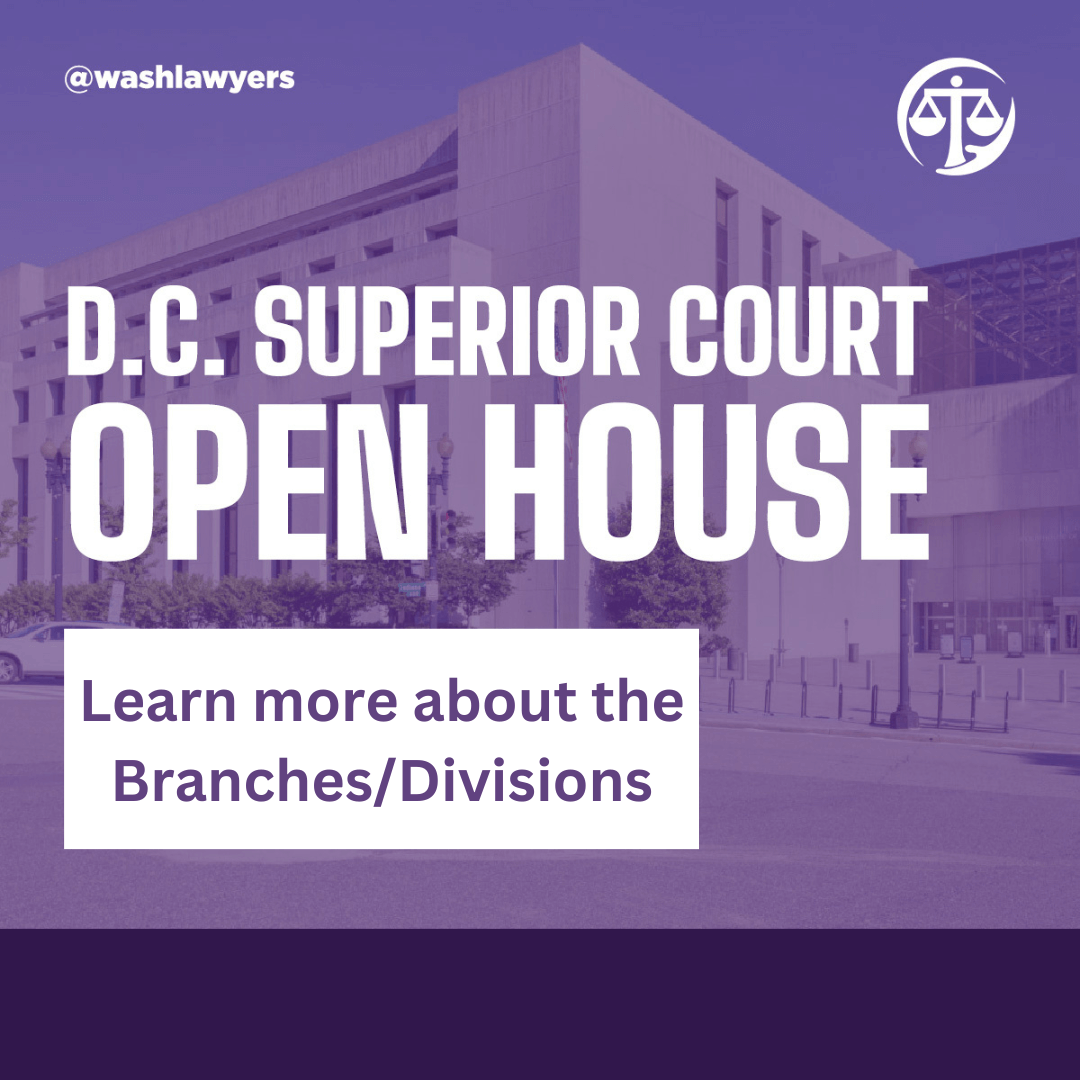
Superior Court Domestic Relations Branch
The Domestic Relations Branch (DRB) is part of the Superior Court’s Family Court and hears custody, divorce, legal separation, annulment, and adoption cases, as well as child support requested in a custody or divorce case. Child custody cases make up the majority of DRB cases for which legal services organizations are seeking pro bono counsel.
Custody is a legal arrangement that establishes who has the right and responsibility to raise a child under the age of 18 years old. In the absence of a court order, a child’s parents have equal and co-extensive custodial rights. If the parents are unable to make shared decisions about the child’s well-being, they will need to obtain a custody order.
A custody case may be brought by one parent against the other parent, regardless of the parties’ marital status. In limited circumstances, a caregiver such as a grandparent who is raising a child, may seek custody by filing for what is known as “third-party custody.” Pro bono attorneys might represent a parent or a third-party caregiver.
The court may appoint a disinterested attorney as guardian ad litem (GAL) to represent the minor child’s best interest. Pro bono attorneys often serve as GALs, as well.
The court can enter a custody order that grants joint or sole legal and physical custody:
- “Legal custody” means legal responsibility for the child, including the right to make decisions regarding the child’s health, education, and welfare; access a child’s records; and speak with teachers, healthcare providers and others about the child.
- “Physical custody” means a child’s living arrangements – where the child lives, eats, and sleeps. Visitation is a form of physical custody.
The “best interest of the child” shall be the primary consideration in determining custody. In deciding what is in the best interest of a child, the court must consider all relevant factors, including 17 specific factors set forth in D.C. Code § 16–914(a)(3).
At an initial hearing, the court usually will inquire about whether the parties agree on any of the requested relief. If it appears that the parties agree on some but not all issues, or are close to agreement, the court may refer them to the Attorney Negotiator Program. For parties who are far apart on the issues, the court will refer them for mediation at the Superior Court Multi-Door Dispute Resolution Center (Multi-Door), a free, confidential mediation service.
Also, at the initial hearing, the court will frequently entertain and decide oral requests concerning the following issues (although the judge may require a written motion and/or schedule an evidentiary hearing):
- Temporary custody, child Support, alimony
- Request for a home study
- Request for mental health examination
- Request for drug testing






